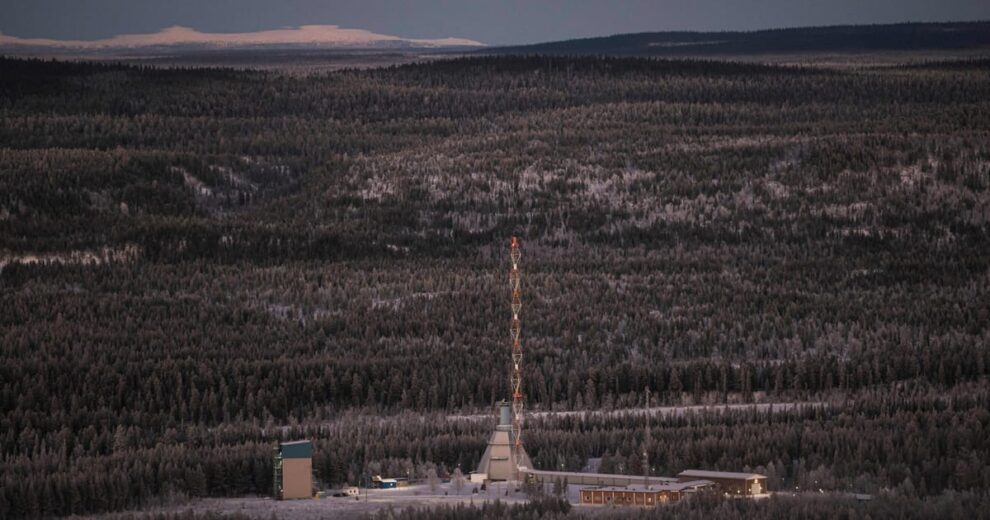KIRUNA, Sweden — Deep inside the Arctic Circle, the Swedish government is boldly trying what the U.K. just failed to do — successfully launch satellites into space.
Europe’s top political brass formally opened a new spaceport at the Esrange Space Center in Kiruna, in the far north of Sweden, on Friday, promising to use the facility as a platform for transporting satellites into orbit to potentially provide everything from eye-in-the-sky climate change monitoring to communication services.
“As the first orbital launch site on our mainland, Esrange Spaceport offers an independent European gateway to space,” Commission President Ursula von der Leyen said at the ceremony. “The future of the EU as a space power will also be written in Sweden.”
Her college of commissioners was gathered at Esrange, a facility founded at the height of the Cold War that has taken on a new geopolitical significance given the ongoing rivalry with China and Russia.
Until now, Europe’s only practical point of access to orbit has been from a spaceport at Kourou in French Guiana, which is run by the European Space Agency, a Paris-based organization that works with the EU on its own space programs.
It’s from the French territory that Europe has launched its Galileo and Copernicus satellite constellations into orbit.
The Esrange Space Center was opened in the Arctic Circle during the 1960s as a research center and data relay point, and will soon offer a base for launching satellites, though probably only those weighing less than 1,000 kilograms.
“This spaceport wants to be a microlauncher site in the future,” the head of the European Space Agency, Josef Aschbacher, told POLITICO.
At present, just a handful of countries have the capability to launch satellites, including China and the United States as well as France and Kazakhstan, which is home to the Baikonur Cosmodrome.
Sweden isn’t the only European country to dream of its own access to the stars.
Efforts to launch the first rocket from a spaceport in Cornwall, southwest England, this month ended in failure. Virgin Orbit did successfully manage to launch satellites onboard a rocket attached to a souped-up 747 but it encountered mission failure later in the journey.
The spaceport at Cornwall Airport is one of a handful of projects that are being developed to offer access to orbit from continental Europe, along with a platform off the coast of Germany in the North Sea and one on Portugal’s Azores.
“Europe is working on half a dozen spaceports, that’s interesting from a competitive point of view and it’s what Europe needs,” the ESA’s Aschbacher said.
The Swedish Space Corporation (SCC) says a maiden satellite run from Kiruna is “expected by the turn of the year 2023/24,” but to transform Esrange into a functioning launch mission site, any rocket first needs to be fired from elsewhere to prove to its neighboring countries (the Norwegian border is just 200 kilometers away) that it’s is safe and works, said Aschbacher.
“SSC are in advanced discussions with several potential rocket partners for future orbital launches from Spaceport Esrange,” the national space agency said.
Meanwhile, researchers from private space start-ups such as Munich-based Isar Aerospace are already hard at work at the Esrange facility testing their own technology, while the ESA wants to carry out so-called “hop tests” of reusable rocket take-off and landing tech at the site, which could help Europe compete with Elon Musk’s SpaceX in future.
The Kiruna site is seen as strategically important for the EU, not only because satellites perform important functions like monitoring oceans and providing broadband, but also because of geopolitical tensions with Russia.
The Commission plans to publish its own plan for how satellites can help the bloc defend itself in March which could tie in Kiruna as an option for orbital defense. “The aim is to improve the resilience of the European space infrastructure and strengthen our shared European capabilities,” von der Leyen said.
Source : Politico















